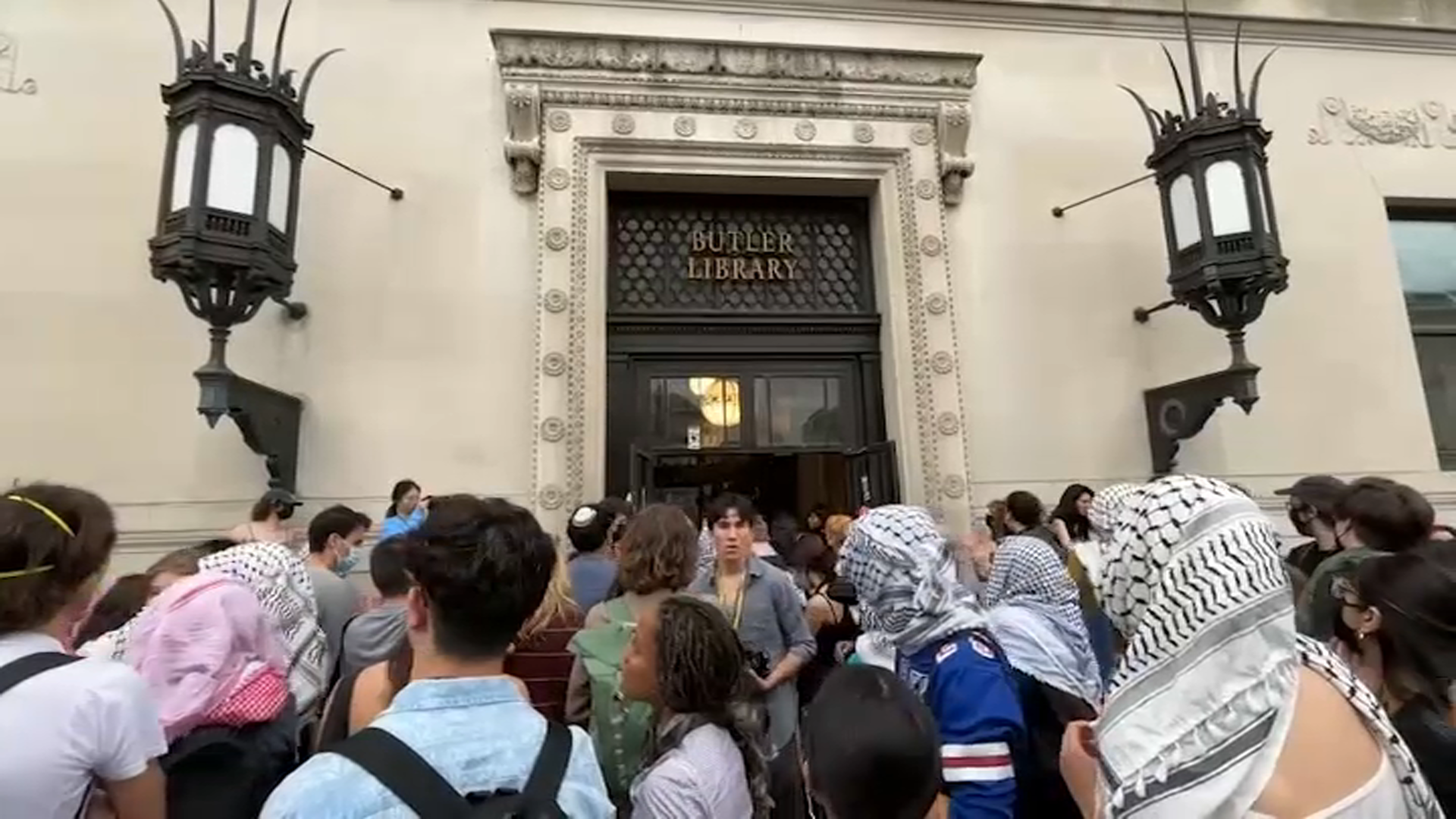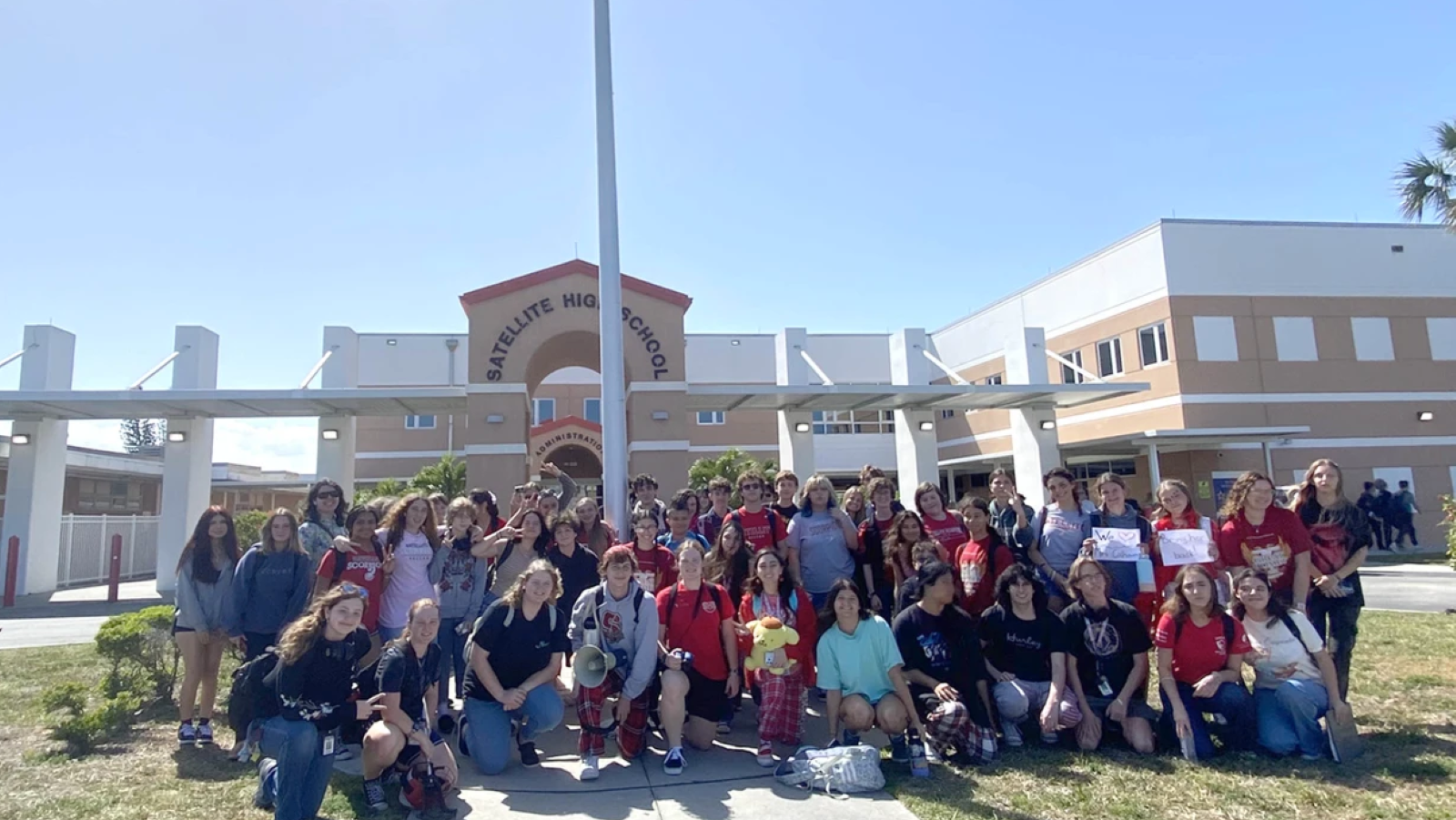Columbia Protests: Adams Urges Parents to Intervene
Columbia University Protests: Parents, It's Time to Talk!
Introduction: A Campus in Turmoil, A Mayor's Plea
The hallowed halls of Columbia University, usually echoing with the murmur of study and intellectual debate, are now reverberating with the chants of protesters. A pro-Palestinian demonstration inside Butler Library has caught the attention of New York City Mayor Eric Adams, who is now making a direct appeal: parents, reach out to your children. But why this urgent call to action? What's really happening on campus, and what role do parents play in all of this? Let's dive in.
The Mayor's Message: Urgency and Concern
Mayor Adams didn't mince words. Speaking on News 4, he stated plainly, "I want to say to parents, if you’re children is on the Columbia campus and participating in this, I think you should reach out to them. This is not what you do on a college campus, particularly going inside a library and protesting in this manner." This wasn't just a suggestion; it was a direct plea. But what’s behind the urgency? Why is parental intervention seemingly necessary?
Understanding Adams' Rationale
Perhaps Mayor Adams believes parents can provide a moderating influence, reminding students of the potential consequences of their actions and fostering a more constructive dialogue. After all, who knows these students better than their families? Maybe he thinks parents can bridge the gap between passionate activism and responsible citizenship.
The Scene at Columbia: Inside Butler Library
According to school officials, a large group of pro-Palestinian protesters entered Butler Library's reading room around 4 p.m. While the protest is reportedly confined to that main room, the very act of occupying a library raises serious questions. Is this a peaceful demonstration, or something more disruptive? Is it really just about the main room or the university's entire symbolic center?
The NYPD's Presence: A Balancing Act
City Hall is in contact with Columbia University, which requested the assistance of the NYPD. Officers are stationed outside the Morningside Heights gates, but haven't entered the campus, at least not yet. This is a delicate balancing act. How do you maintain order and ensure safety without infringing on students' right to protest? The NYPD is walking a tightrope.
The Question of Intervention
Will the NYPD eventually enter the library? That depends on how the situation unfolds. If the protest remains peaceful and contained, perhaps not. But if it escalates, intervention becomes more likely. The safety of students, faculty, and staff is paramount.
The Heart of the Matter: Pro-Palestinian Protests
At its core, this protest is about the ongoing conflict between Israel and Palestine. Students are voicing their support for Palestine, calling for an end to the violence and a just resolution to the conflict. These are deeply held beliefs, fueled by passion and conviction. But how do you express these beliefs in a way that's both effective and respectful?
The Right to Protest: A Cornerstone of Democracy
In a democracy, the right to protest is sacrosanct. Students have the right to voice their opinions, to assemble, and to make their voices heard. But that right isn't absolute. It comes with responsibilities. Protests must be peaceful, lawful, and respectful of others.
The Role of Universities: Balancing Freedom and Order
Universities are meant to be bastions of free speech, places where ideas can be debated and challenged. But they also have a responsibility to maintain order and ensure a safe learning environment. It's a constant tension, a delicate balancing act. How do you foster free expression without allowing it to descend into chaos?
Columbia's Stance: Awaiting Clarity
As of now, Columbia's official stance is evolving. They're engaged with City Hall and monitoring the situation closely. More definitive statements and actions are anticipated in the coming hours as the situation unfolds. The university finds itself between a rock and a hard place, trying to respect students' rights while ensuring safety and order.
Parental Influence: More Than Just a Phone Call
Mayor Adams' appeal to parents highlights the potential influence they can wield. It's not just about telling your child what to do; it's about having a conversation, understanding their perspective, and encouraging them to think critically about their actions. It's about fostering responsible activism, not stifling their passion.
Understanding Student Perspectives
Before launching into lectures or pronouncements, take the time to actively listen to your child’s perspective. Why are they involved? What do they hope to achieve? Showing genuine interest and understanding can open the door to a more productive dialogue. Empathy can work wonders in times of conflict.
The Ripple Effect: Beyond Columbia's Campus
What happens at Columbia University doesn't stay at Columbia University. The protests there can inspire similar actions at other campuses across the country. It's a ripple effect, a chain reaction. That's why it's so important to address the situation in a thoughtful and responsible manner.
Consequences and Considerations
Participating in protests, especially those that violate university rules or the law, can have serious consequences. Students could face disciplinary action, including suspension or expulsion. They could also face arrest and criminal charges. It's crucial that students understand the potential risks involved.
The Importance of Legal Awareness
Knowing your rights, and the limitations of those rights, is essential. What constitutes a lawful protest? What are the consequences of trespassing or disorderly conduct? Being informed can help students make smarter choices. Ignorance is not bliss; it can be costly.
Moving Forward: Dialogue, Understanding, and Respect
Ultimately, resolving this situation requires dialogue, understanding, and respect. Students need to be able to express their views without fear of retribution, but they also need to do so in a way that doesn't infringe on the rights of others. It's a delicate balance, but it's achievable.
Conclusion: A Call for Responsible Action
Mayor Adams' call for parental involvement underscores the gravity of the situation at Columbia University. Pro-Palestinian protests, while protected by free speech, must be conducted responsibly and lawfully. Parents can play a vital role in guiding their children towards constructive activism, ensuring they understand the potential consequences of their actions, and fostering a dialogue rooted in respect and understanding. The future of this situation depends on open communication, thoughtful action, and a commitment to finding common ground.
Frequently Asked Questions
Here are some frequently asked questions regarding the situation at Columbia University and the Mayor's request:
Q1: Why is Mayor Adams specifically asking parents to get involved?
A1: Mayor Adams believes parents can offer valuable guidance and perspective to their children, encouraging them to express their views responsibly and to consider the potential consequences of their actions within the university's code of conduct and the law.
Q2: What are the potential consequences for students participating in these protests?
A2: Students could face disciplinary action from the university, including suspension or expulsion. Depending on their actions, they could also be arrested and face criminal charges, such as trespassing or disorderly conduct.
Q3: How can parents effectively communicate with their children about these protests?
A3: Start by listening to their perspective and understanding their motivations. Engage in open and respectful dialogue, share your own values and concerns, and encourage them to think critically about the potential impacts of their actions on themselves and others.
Q4: What is Columbia University's official stance on student protests?
A4: Columbia University supports free speech and the right to protest, but it also has a responsibility to maintain order and ensure a safe learning environment. The university is working to balance these competing interests and will likely take action if protests disrupt campus operations or endanger individuals.
Q5: Where can I find more information about my child's rights as a protester?
A5: Organizations like the American Civil Liberties Union (ACLU) and the National Lawyers Guild offer resources on students' rights to protest. Additionally, the university's student affairs office can provide information on relevant policies and procedures.


